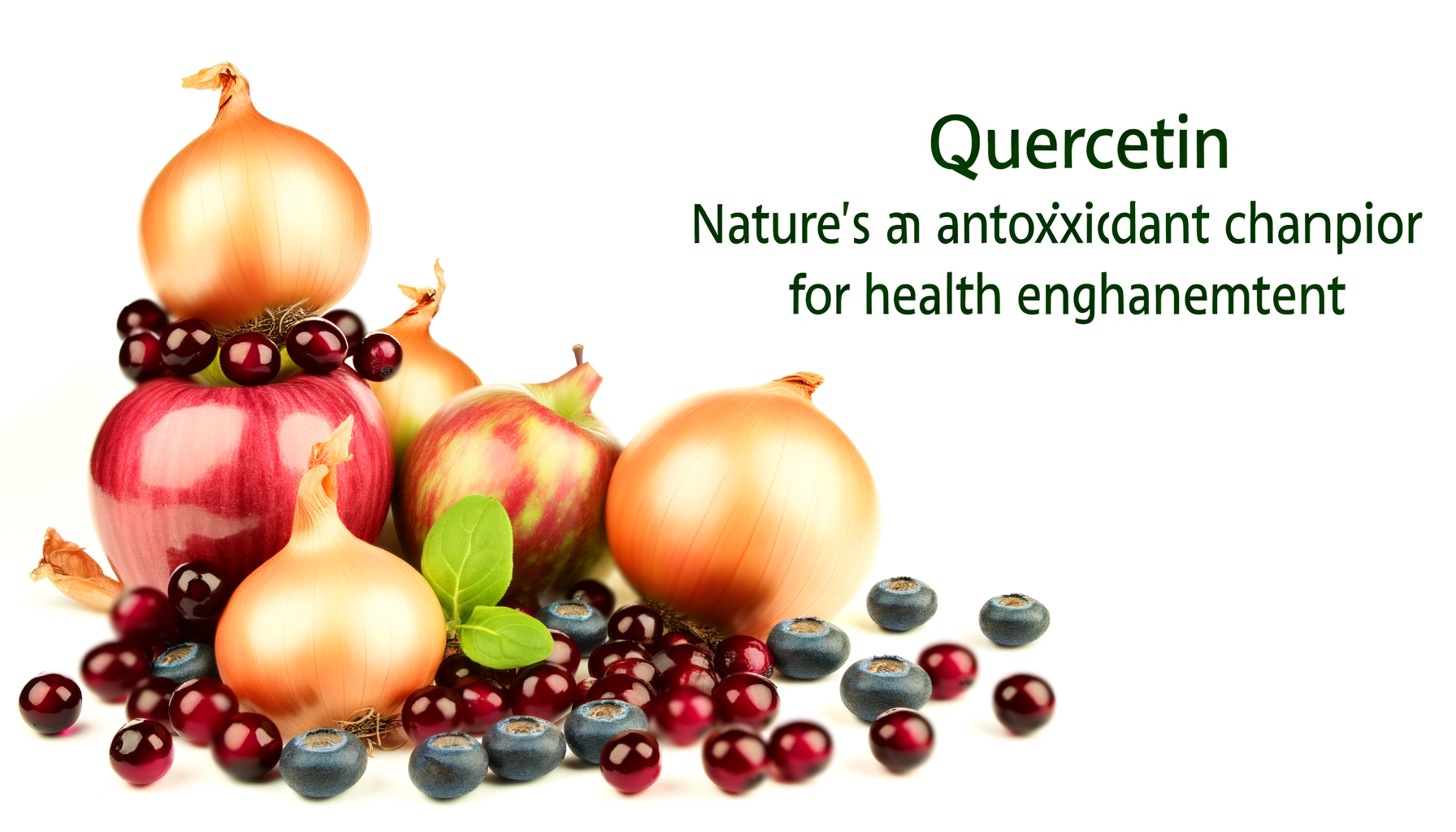Unlocking the Potential of Quercetin: A Promising Functional Food Component
Article Selection and Core Summary
The latest research highlights quercetin, a naturally occurring flavonoid, as a potential powerhouse for health. This compound is predominantly found in apples, onions, teas, and red wine. The article draws attention to quercetin's abilities in anti-inflammatory responses, antioxidant activities, and possible antiviral properties.
Core Claims and Methodology: Researchers conducted a series of in vitro studies—think of these as controlled experiments in test tubes—to observe how quercetin interacts with cellular components. The primary focus was on its ability to scavenge free radicals, compounds that can cause cellular damage and contribute to chronic diseases.
Main Findings: Quercetin exhibited significant antioxidant properties, protecting cells from oxidative stress. Additionally, it showed promise in reducing inflammation markers and even inhibited the replication of certain viruses in preliminary tests.
Background Knowledge and Context
The Basics of Flavonoids and Antioxidants: Flavonoids are compounds widely found in fruits and vegetables, known for their health benefits. Antioxidants are like the body’s internal cleanup crew, preventing our cells from being overwhelmed by harmful agents or “free radicals.” Imagine them as rustproofing agents, preventing damage much like rustproofing helps in maintaining the integrity of metal.
Oxidative Stress: This term refers to the imbalance between antioxidants and free radicals in the body, which can lead to cell damage. It’s akin to leaving iron unprotected in the rain—eventually, it succumbs to rust.
Analysis of Research Significance and Practical Applications
Medical and Scientific Importance: This research adds to the growing body of evidence supporting quercetin’s benefits. It emphasizes the need for further investigation into its usage as a supplement or functional food ingredient—a food component that may emphasize health over basic nutrition.
Practical Applications: Incorporating quercetin-rich foods into your daily diet, like enjoying an apple or sipping on green tea, could help boost your immune defense and reduce inflammation naturally. These findings could lead to the development of dietary supplements designed to harness quercetin’s properties more effectively.
Personal Expert Opinion and Future Outlook
Expert Insight: While the potential of quercetin is exciting, it's crucial to remember that most studies so far are lab-based. As such, the true efficacy in humans remains to be fully validated. The controlled conditions of in vitro studies do not always translate directly to the complex systems of the human body.
Future Perspectives: The research could evolve by moving into clinical trials involving human participants to better understand dosing, efficacy, and safety. Exploring the synergistic effects of quercetin combined with other flavonoids might also offer new insights. Additionally, examining its long-term effects when consumed as part of the regular diet or as a supplement will be crucial for its acceptance in mainstream health practices.
Concluding Thoughts: Quercetin holds promise as an appealing option to enhance health and address inflammation and viral threats naturally. But, like all health claims, it needs to pass the muster of scientific scrutiny before being widely embraced.
For more on the original research, check out the full article at: Google News Article
